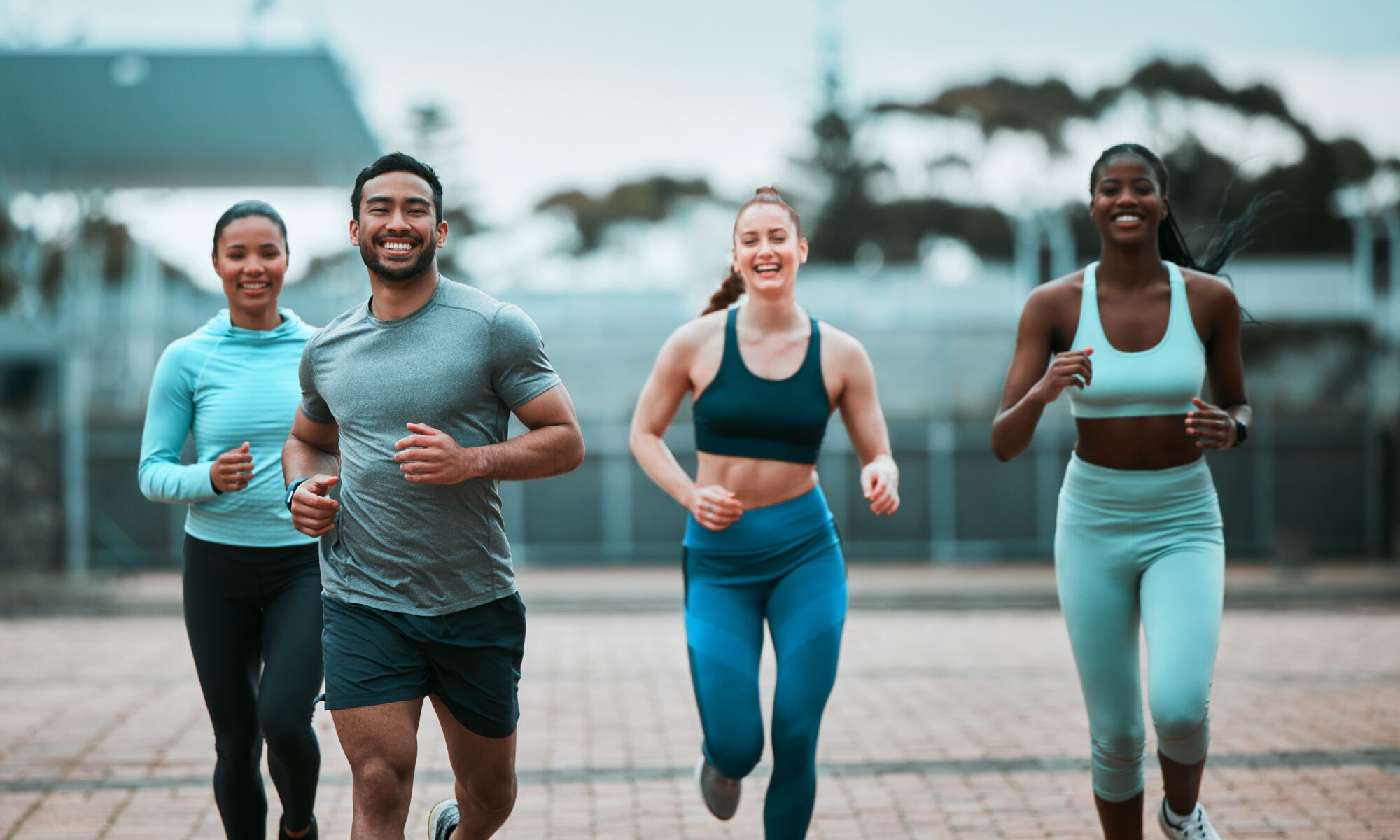Regular exercise is incredibly effective in preventing many chronic, cardiovascular and degenerative diseases.
The physical benefits of sporting activity
Regular exercise is incredibly effective in preventing many chronic, cardiovascular and degenerative diseases.
Sport strengthens the heart and regulates blood pressure
Regular physical activity improves and regulates the functioning of the cardiac system, dramatically reducing all cardiovascular risk factors. Indeed, one of the main benefits of sport is that it improves the functioning of the cardiovascular system, optimising blood circulation by vasodilating the blood vessels. With training, the heart will beat more slowly at rest and therefore tire less. The reduction in resistance during blood circulation will also lead to a drop in blood pressure.
Sport can reduce high blood pressure and ‘bad’ cholesterol levels by up to 50%, as well as regulating blood sugar levels, thereby reducing the risk of diabetes. Over time, it helps to make the heart stronger and less fatigued during physical effort. What’s more, regular exercise strengthens the heart muscle and makes the blood more fluid, preventing blood clots. There are many benefits to keeping your heart strong and healthy for a long time to come.
Sport increases bone capital
Activating the body will stimulate the action of cells in their bone-building role. This regeneration will strengthen your bones and prevent osteoporosis.
As a general rule, between the ages of 35 and 50, we lose between 7% and 12% of our bone mass. Regular physical activity is beneficial for improving your bone density. This strengthening of bones and muscles is highly recommended to limit the onset of chronic conditions such as low back pain, inflammatory rheumatism, osteoporosis and arthritis. Weight-bearing activities (walking, jogging, tennis, in-line skating, etc.) and lifting (weights, for example) are best for strengthening bones.
Sport helps maintain muscle mass
Sporting activity increases strength, endurance and muscle volume, so helps prevent injuries and various types of hip, knee and back pain. All important benefits for healthy ageing.
Sport prevents joint problems
Regular exercise promotes the nutrition and mobility of cartilage, preventing joint pain and osteoarthritis.
Sport promotes digestion
As well as making eating more enjoyable and improving your appetite, practising sport helps digestion and is an effective remedy for constipation.
Sport helps you breathe easier
Practising endurance sports such as cycling or swimming helps to increase lung capacity, which in turn helps to combat asthma problems.
Sport gives you a slim, toned figure
Regular exercise will help you burn calories and thus facilitate weight loss. For slimming purposes, cardio sports such as swimming, cycling, elliptical training or running are best. On the other hand, if you want to tone up your body, you’re better off doing sports with a strong muscular component, such as dance, gymnastics, Pilates, cross-training, etc. Better still, doing high-intensity interval training (like HIIT) helps you build muscle while burning fat.
The mental benefits of sporting activity
The benefits of sporting activity are not limited to improving physical fitness. According to the Institut national de santé publique du Québec, physical activity can have a number of beneficial effects on the mind.
Sport conveys a feeling of general well-being
We all know that feeling that comes over us after an intensive session of sport. We feel drained… but also completely relaxed and serene. This feeling is linked to the fact that physical activity increases the level of serotonin in the blood, a neurotransmitter in the brain that promotes relaxation and a good mood. It also increases the secretion of endorphins, euphoric hormones in the same family as morphine.
Both physical and mental well-being, thanks to the secretion of hormones such as endorphin, which generates a real feeling of pleasure, sometimes even euphoria. In fact, it’s often the case that once you’ve practised enough, you can’t do without sport. So, rather like the effect of a drug, you feel the need to rediscover that state of well-being that comes with physical effort.
Sport, a quality stress reliever
Sport has a calming effect thanks to endorphins, substances produced by our brain. What’s more, it allows you to clear your mind and forget your everyday worries.
As a result of the action of endorphins and this general sense of well-being, stress and anxiety levels are significantly reduced by taking part in sporting activities. Exercise also promotes better sleep. It induces physical fatigue and leads to mental relaxation, resulting in a more restful night’s rest. Cardiovascular exercise is the most effective way of increasing the quality of deep slow wave sleep, the most important phase for physical recovery.
In this period of instability and adaptation, let’s take advantage of all the benefits of physical activity on our mental health… whether it’s a long walk, a bike ride or a workout at home! Putting physical activity at the heart of your priorities is a simple measure that everyone can take to look after their health and well-being. And with all the above in mind, it’s easy to see how physical activity can be a real therapy, effective at any age and at any level… So what are you waiting for, get your trainers back on?
Sport improves mental performance
Endurance sports improve oxygen transport in the body and therefore oxygenation of the brain, which optimises brain activity.
Sport instils willpower and tenacity
The goals we set ourselves in or through sport are rarely easy to achieve, and often require perseverance and patience. In a way, this is also true of everyday life: practising sport can help us to move forward more serenely when faced with personal or professional problems, giving us greater self-confidence.
Sport helps you sleep
There’s nothing like a bit of physical activity to help you relax and relieve the stresses of everyday life. Good physical fatigue is the guarantee of deep, restful sleep.


